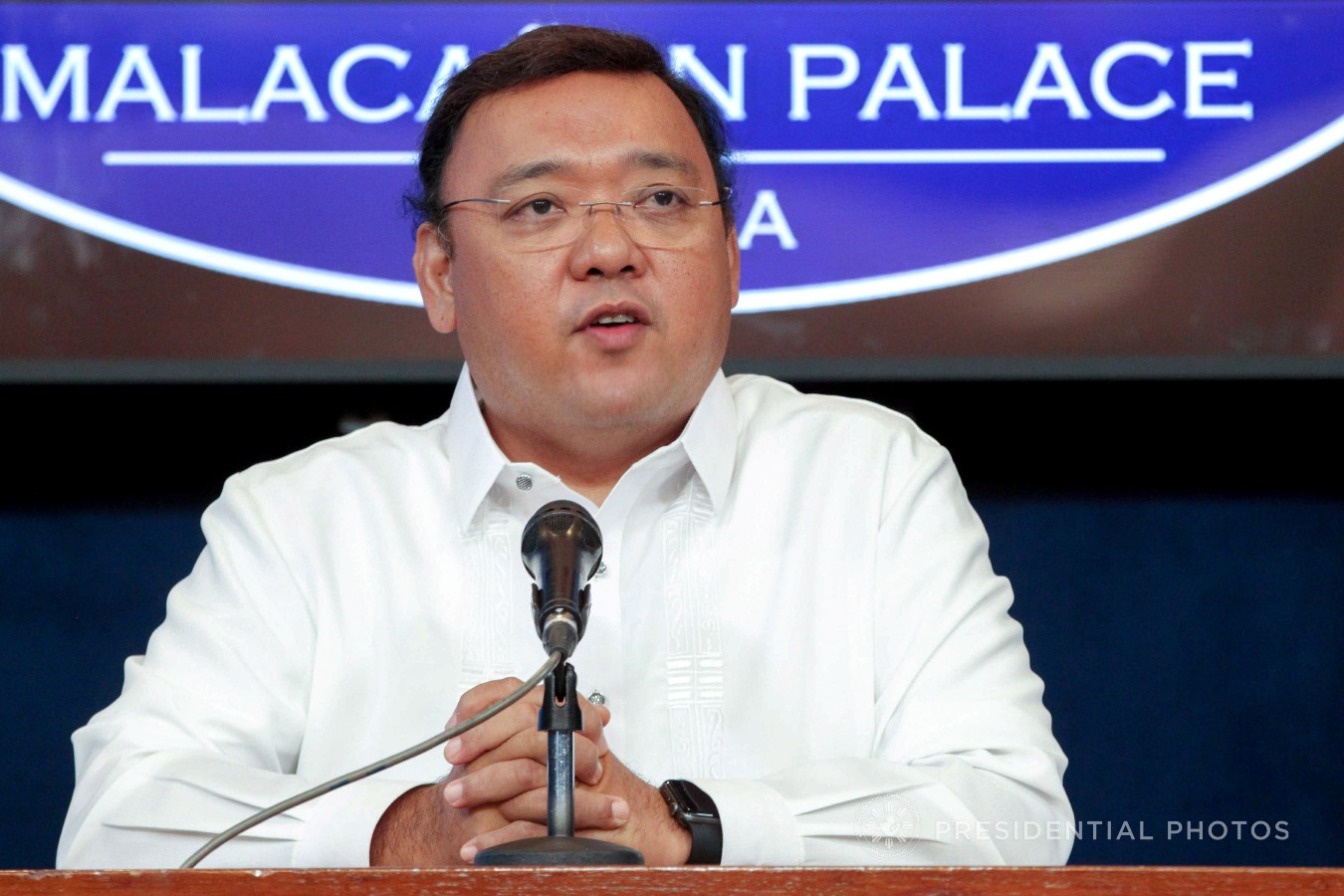Headline
Malacañang bares new guidelines for areas under GCQ

The new set of guidelines for areas under GCQ was approved by the Inter-Agency Task Force for the Management of Emerging Infectious Diseases on Wednesday, Presidential Spokesperson Harry Roque said. (PCOO file photo)
MANILA – Malacañang on Thursday released a copy of the revised guidelines for areas that will be placed under general community quarantine (GCQ) from May 1 to 15.
The new set of guidelines for areas under GCQ was approved by the Inter-Agency Task Force for the Management of Emerging Infectious Diseases on Wednesday, Presidential Spokesperson Harry Roque said.
In a virtual presser aired on state-run PTV-4, Roque said Metro Manila; Central Luzon, except Aurora; Calabarzon; Pangasinan; Benguet; Iloilo province; Iloilo City; Bacolod City; Cebu province; Cebu City; and Davao City are under enhanced community quarantine (ECQ) until May 15.
GCQ will be imposed in other places in the country that are not included in the list of areas under ECQ.
Roque said there must be minimum public health standards “at all times” in areas where GCQ would be enforced.
“Ibig sabihin, social distancing, pagsusuot ng face mask, yung mandatory check of temperature, at paggamit po ng alcohol at iba pang sanitizers (Meaning, social distancing, use of face mask, mandatory check of temperature, and use of alcohol and other sanitizers [must be observed]),” he said.
Limited public movements
Roque said public movements are still limited to accessing essential goods and services and for work in the permitted industries during the implementation of GCQ.
Thus, movement for leisure purposes are not allowed, he stressed.
‘’Yung mga biyahe para sa leisure, mga bakasyon, hindi pa rin po iyan pinapayagan (Travel for leisure activities or vacation is still prohibited),” Roque said.
Roque said people aged 21 and below or 60 and above; people with immunodeficiency, comorbidities, or other health risks; and pregnant women who are in areas under GCQ must observe strict home quarantine, except “when indispensable under the circumstances for obtaining essential goods and services or for work in permitted industries and offices.”
Work gatherings, religious activities allowed
“’Yung mga essential work gatherings and religious activities, pupwede na pong magpatuloy (Essential work gatherings and religious activities may proceed),” he said.
Roque said essential work gatherings and religious activities may continue as long as strict social distancing of at least two meters is observed.
He added that attendees are required to wear face mark, face shield, or other facial protective equipment during the event.
Public transportation
Roque said road, rail, maritime, and aviation sectors of public transportation can operate at “a reduced capacity” during the implementation of GCQ.
He said the operations of mass public transport must be in accordance with guidelines issued by the Department of Transportation.
“In all public transports, a strict one-meter distance between passengers shall be observed and appropriate engineering controls [shall be] in place,” Roque said.
Work resumption
Once GCQ is implemented on May 1, Roque said work in government offices may be at “full operational capacity,” Roque said.
“Balik trabaho na po ang mga government offices, local and national. Kinakailangan, merong social distancing (Work in government offices — local and national — will resume. Social distancing must be observed). At saka kung pupwede po, magkaroon ng (There should also be) alternative work arrangements, as agencies may deem proper,” he said.
Roque noted that limited operations in malls and shopping centers would still be allowed.
He, however, stressed that leisure establishments would remain closed.
Roque said the resumption of essential public and private construction projects would be allowed, in accordance with guidelines issued by the Department of Public Works and Highways
He added that amusement, gaming and fitness establishments may not operate during ECQ period.
He likewise said hotels or similar firms cannot operate, except for those that are outside Luzon; have existing long-term bookings; and serve as basic lodging to repatriated Filipinos, healthcare workers, and other front-liners.
Physical classes still suspended
Roque said physical classes are still suspended in areas that are placed under GCQ.
Classes have been suspended as early as March to stop the further spread of coronavirus disease 2019 (Covid-19) in the country.
Roque said higher education institutions (HEIs) may hold classes through flexible learning arrangements to finish the academic year 2019 to 2020.
He added that HEIs may operate at a limited capacity to receive students’ requirements, as well as to prepare credentials subject to the guidelines that may be issued by the Commission on Higher Education.
As of Thursday, the Philippines has 8,488 confirmed Covid-19 infections, with 568 deaths and 1,043 recoveries.





















